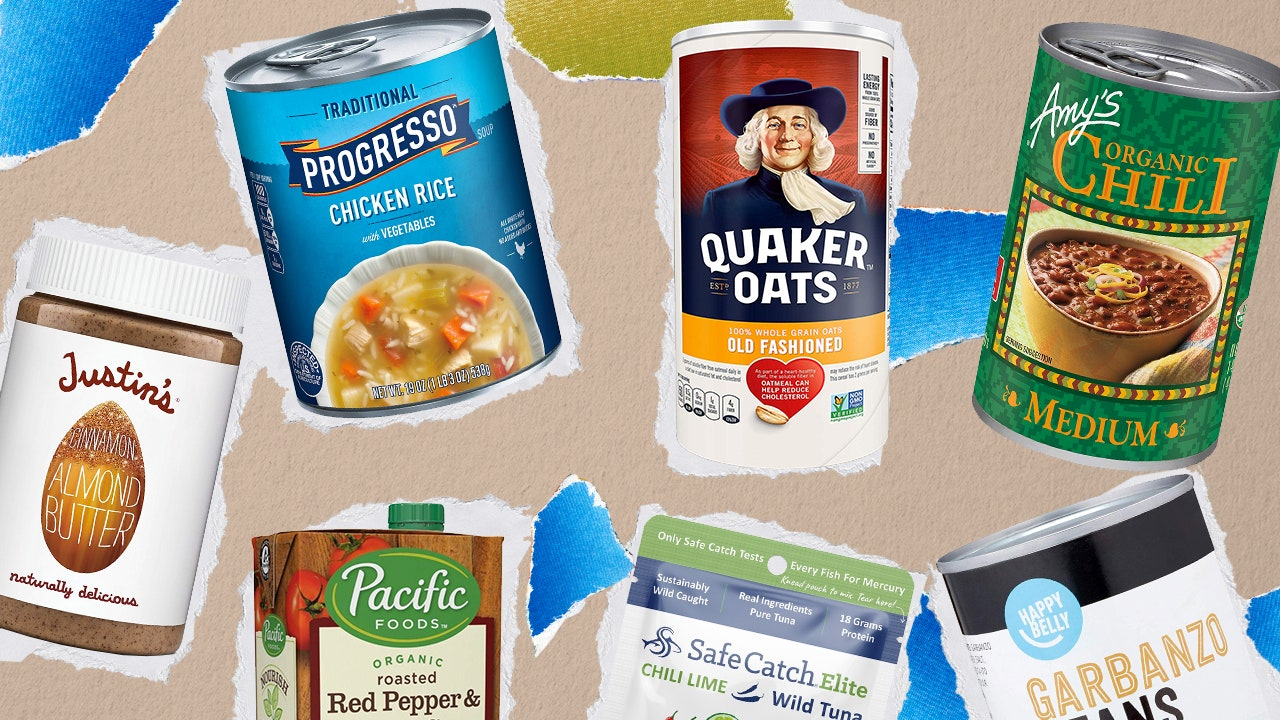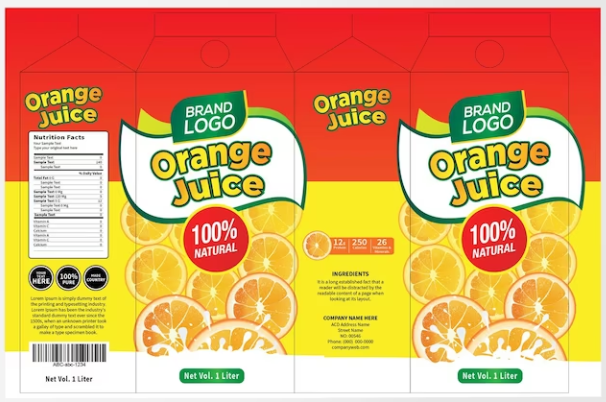Mandatory Food Labelling Declarations you must have to be 100% Food Label Compliant in India
June 5, 2023

Keywords: Food Labelling, Food Imports in India, Mandatory Declarations, Food Label Compliance, Indian Regulations, Updated Food Labelling Guidelines, 100% Food Labelling Compliance, Essential Requirements, India
Food Labelling may seem like a tedious and mundane task for many food manufacturers, but it is far from being just a simple advertising tool. In fact, it is an essential component of any food product and is mandatory for all food manufacturers. The label on a food product is not just a tool for marketing, but it is also a crucial tool for consumer safety and trust. It provides consumers with valuable information about the food product they are consuming, allowing them to make informed decisions based on their dietary requirements, allergies, and personal preferences.
Non-compliance not only puts the safety of the food product at risk but also exposes the manufacturer to legal issues and costly recalls. On the other hand, compliance helps to establish trust and credibility with consumers, which in turn translates to increased sales and brand loyalty.
The importance of food labelling compliance doesn't stop at domestic markets. For those looking to export food products outside of India, adherence to Indian food labelling regulations is equally crucial. Just like how the Food Safety and Standards Authority of India (FSSAI) has established specific requirements for food products, several countries have their own food labelling regulations that need to be adhered to, including mandatory labelling declarations.
Complying with these regulations is vital for a smooth export process and to avoid any potential delays or rejections at customs. Failing to meet the mandatory food labelling requirements for exported products can result in penalties, seizures, or even the complete rejection of the shipment.
Additionally, consumers are becoming increasingly discerning about the origin and quality of the food products they purchase, especially when it comes to imported goods from an outside. By ensuring compliance with food labelling regulations, food companies can demonstrate commitment to transparency and consumer safety, enhancing your reputation and increasing the chances of success in the market.
In this article, we will delve into the details of food labelling mandatories for food companies to be 100% labelling compliant for the Indian markets.
Let's dive in!
Common Mandatory Food Labelling Declarations across the Globe
Food labelling requirements vary from country to country, and food manufacturers must comply with the mandatory labelling parameters in each country they distribute their products. Let us understand the common food labelling declaration that are standard across the world, and how food labelling differs in India and across various countries.
1. Name of Food
The name of food refers to the specific name or description of the product, helping consumers identify and differentiate it from other similar food items. A mandatory parameter across most countries, the purpose of declaring the name of food on a food label is to identify and provide clarity about the specific food product being sold or consumed.
E.g. Chocolate Milkshake, Filtered Groundnut Oil, 100% Whole Grain Bread.
2. List of Ingredients
Ingredient list is present in the descending order or the ingredient quantities. In mnay countries like UAE, India, single ingredient food products can be excused from mentioning a separate ingredient list. E.g. Milk, Honey, Besan, Tea, Coffee, etc.
3. Nutritional Information
Regulations on nutritional information remains more or less the same in various countries, which includes mentioning the values of Energy, Carbohydrates, Proteins and Fats along with their sub-components. Certain countries like USA requires this information to be present in accordance to per serve, while other countries like UK and India mandate this information as per 100 g/ml.
Additional information on number of servings per pack, serving size and %RDA or %DV per serve are also mandated in India, USA and many countries globally.
4. Declaration of Vegetarian or Non-vegetarian
Indian food standards mandate the presence of Veg and Non-Veg indicators on food packaging. Vegetarian foods are marked with a green circle and non-vegetarian products are marked with a dark brown triangle.
However, in many other countries, such as the USA, UK, UAE, and Australia, there are no specific mandatory requirements for veg and non-veg demarcation. In these countries, consumers rely on the ingredient list and other relevant labelling information to determine if a product is suitable for their dietary preferences.
5. Declaration regarding Food Allergens
The list of allergens required on food packaging differs across countries. Common allergens, such as milk, eggs, fish, shellfish, tree nuts, peanuts, wheat, and soybeans, are widely recognized. For instance, the UK recognizes 14 major food allergens, while the US and UAE recognizes 9, and India recognizes 8 allergens.
Food manufacturers must clearly label allergens on packaging, usually in the ingredient list, highlighting them in bold or by other means to alert consumers with allergies and enable informed food choices.
Also Read: Powering Allergen Management with Artificial Intelligence (AI) : Enhancing Food Safety for Fresh Food and Packed Food in India | FoLSol Infocenter
6. Declaration regarding Food Additives
The use of permitted additives could vary from one country to another, depending on their effects on human health. For example, certain permitted additives used in the US or India are banned in Europe. Moreover, permissible limits of additives can differ within similar products across individual countries. These variations highlight the importance of understanding and complying with specific regulations in each market. Food manufacturers and distributors must carefully assess the approved additives in each country, ensuring they adhere to local standards and provide accurate labelling information to consumers.
7. Declaration of Name and complete address of Manufacturer
The purpose of declaring the name and complete address of the manufacturer on a food label is to provide transparency and accountability. It allows consumers to identify the entity responsible for producing the food product and provides them with a means to contact the manufacturer if needed, such as for inquiries, feedback, or in the case of any issues or concerns regarding the product.
8. Date Marking
Indian food regulations mandate the mention of expiry dates on food products, which is different from US regulations. In the USA, the inclusion of expiry dates is not mandatory. However, the UK and Australia have regulations that require food products to display a "Use By" or "Best Before" date indicating the recommended date by which the food should be consumed for optimal quality and safety. The UAE follows similar guidelines, mandating the inclusion of production and expiry dates. The inclusion of expiry dates helps consumers identify expired products and avoid foodborne illnesses
9. Net Quantity
Almost every country requires the declaration of net weight or volume of food contained in the package, helping consumers make informed purchasing decisions and avoid being misled. In the UAE, packaged foods must display the net weight or volume in both Arabic and English and in the USA, food manufacturers are required to mention the net quantity in both metric and imperial unit systems, i.e., both in grams and pounds.
10. Lot/Code/Batch Identification
Declared across nations as a mandatory practice, this declaration helps in traceability and quality control, enabling manufacturers to track specific batches of products in case of quality issues or recalls.
11. Legal Metrology Guidelines
Legal metrology guidelines vary across countries, specifically pertaining to font heights and styles. Food manufacturers must adhere to these guidelines to ensure their product labels meet the required standards.
Use of Artificial Intelligence (AI) to validate Food labels for their Regulatory Compliance
Various technologies under Artificial Intelligence (AI) such as Named Entity Recognition (NER), Optical Character Reading (OCR), can be used to read and extract information such as ingredient list, nutrition information, allergens, food additives, etc. from food labels and checked against regulations to establish compliance.
FoLSol-AI® by LabelBlind® is India’s 1st AI-led Food Label Validation model. FoLSol-AI® is trained on 1000s of Food Labels using Neural Networks, to assess regulatory compliance of food labels. FoLSol-AI® interacts with label images and generates a food labelling compliance report instantly for any food label, across any food category as per FSSAI and Legal Metrology Regulations. All you need to do is, Upload your Food Label images on FoLSol-AI®. Rest will be done by FoLSol-AI®. It checks your food label on FSSAI, Legal Metrology and Plastic Waste Management standards and provides you a comprehensive food label compliance report. From days and hours, the effort of Checking Food Labels is Reduced to Seconds and Minutes with FoLSol-AI®.
Write to us at support@foodlabelsolutions.com for a demo of FoLSol AI® and its benefits for your company.
Other Essential Food Labelling Declarations across the Globe
Instruction of use to guide consumers on how to use or consume the product properly, ensuring optimal safety, quality, and effectiveness.
Retail Sale Price in local currency are mandatory on the food pack.
Consumer Care Details for consumers to reach out to the manufacturer or customer service in case of inquiries, complaints, or feedback, enhancing customer support and satisfaction. FSSAI and Legal Metrology in India mandate the declaration on consumer care details such as postal address, email ID and phone number.
FSSAI logo and License number is mandatory for all food products sold in India to indicate the manufacturer’s identity and establish trustworthiness w.r.t the regulations set by the Food Safety and Standards Authority of India (FSSAI).
Halal, Kosher, Organic, Vegan Indicators. The UAE mandates the display of Halal indicators on food packaging, similar to Kosher indicators to identify kosher foods. Several countries have their respective organic food regulations and a specific indicator to mark organic certified products. E.g. USDA Organic, Jaivik Bharat, etc.

Impact of Non-Compliance
Non-compliance with food labelling regulations can have significant impacts on both local and global markets. Firstly, it can erode consumer trust and confidence in food products, leading to a decline in sales and brand reputation. Non-compliant labelling may also pose health risks, especially if allergens or inaccurate nutritional information are not properly disclosed, potentially leading to adverse reactions or health concerns. Moreover, non-compliance can result in legal consequences, including fines, product recalls, and even market entry restrictions in certain countries.
To ensure compliance, food manufacturers should stay updated on labelling regulations, implement robust quality control measures, conduct regular audits, provide training to staff, and utilize technology solutions such as automated labelling systems to reduce human errors and improve accuracy.
In conclusion, mandatory food labelling parameters vary across countries, and food manufacturers must comply with the requirements in each country they distribute their products. Compliance with these requirements is crucial for ensuring consumer safety and promoting transparency in food labelling. As a food manufacturer, complying with mandatory food labelling requirements should be at the forefront of your priorities. Failure to comply can have severe consequences, and investing in compliance strategies and resources will not only ensure your product's safety but also set you apart in a crowded and competitive market.
About LabelBlind®
Established in 2018 and based in Mumbai, LabelBlind® specialises in the area of Digitising Food Labelling and Regulatory Compliance. FoLSol® by LabelBlind® presents India’s 1st Digital Food Labelling Solution. The SaaS platform supports Food Businesses to be Labelling Compliant and Build Consumer Trust. FoLSol® by LabelBlind® is designed to strengthen the food labelling ecosystem across a wide spectrum of services including, Packed Food Labelling, Menu Labelling, Exports Labelling, Nutraceuticals and Food Supplements Labelling and Labelling for Ecommerce players. FoLSol® Digital Food Labelling Solution is fast, accurate, and cost effective. The company is ISO9001 certified in its processes.
References
FSSAI Food Labelling | SetIndiaBiz | https://www.setindiabiz.com/learning/fssai-food-labelling
Nutritional Labeling: Different Countries, Different Approaches | SaltWell | https://www.saltwellsalt.com/news/nutritional-labeling-different-countries-different-approaches/
An introduction to U.S. food labeling requirements | WikiFarmer | https://wikifarmer.com/an-introduction-to-u-s-food-labeling-requirements-the-what-where-and-when-of-a-compliant-food-label/
United Arab Emirates - Labeling/Marking Requirements | International Trade Administration USA | https://www.trade.gov/knowledge-product/united-arab-emirates-labelingmarking-requirements

Layeba Siddique (MSc Nutraceutical)
Layeba has a passion for exploring innovative applications of technology in the space of food science. Additionally, she has a profound fascination for space exploration.
